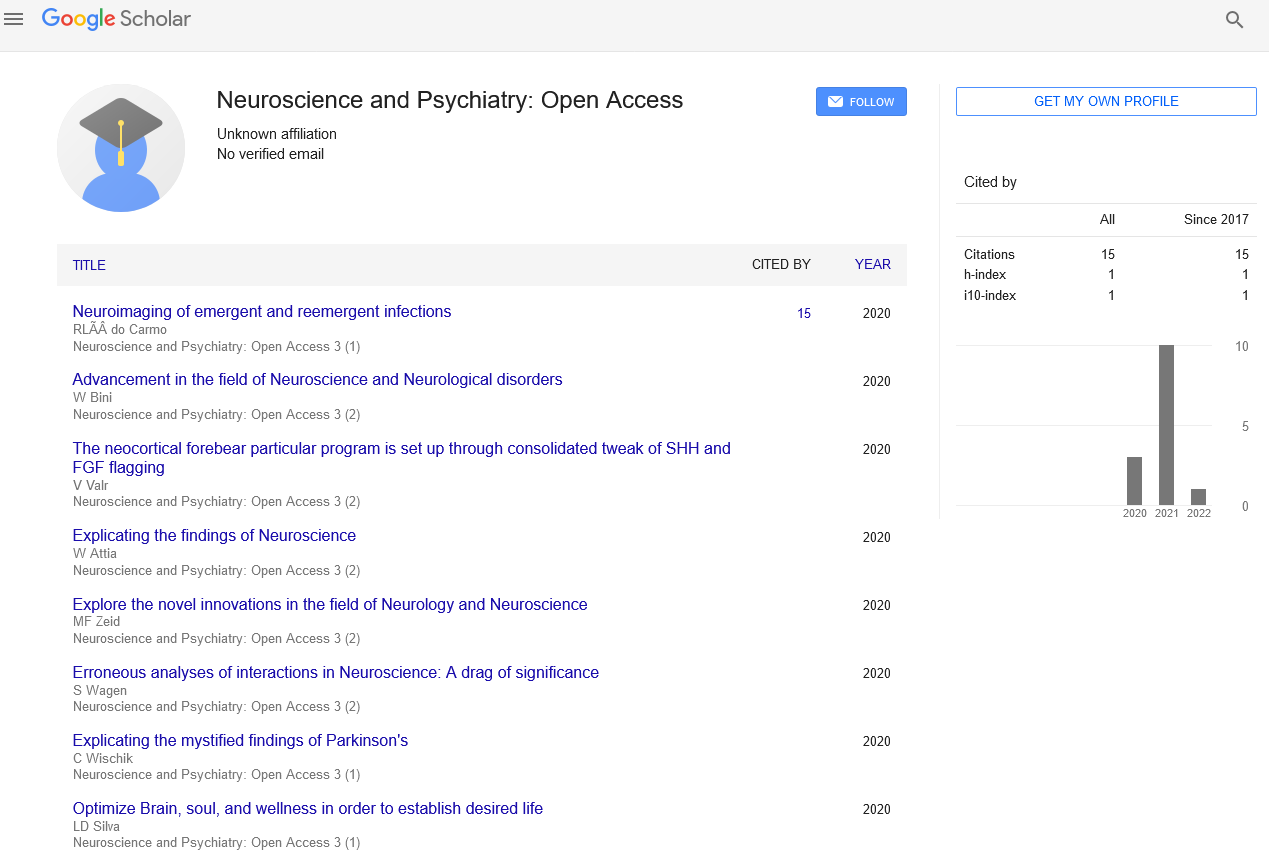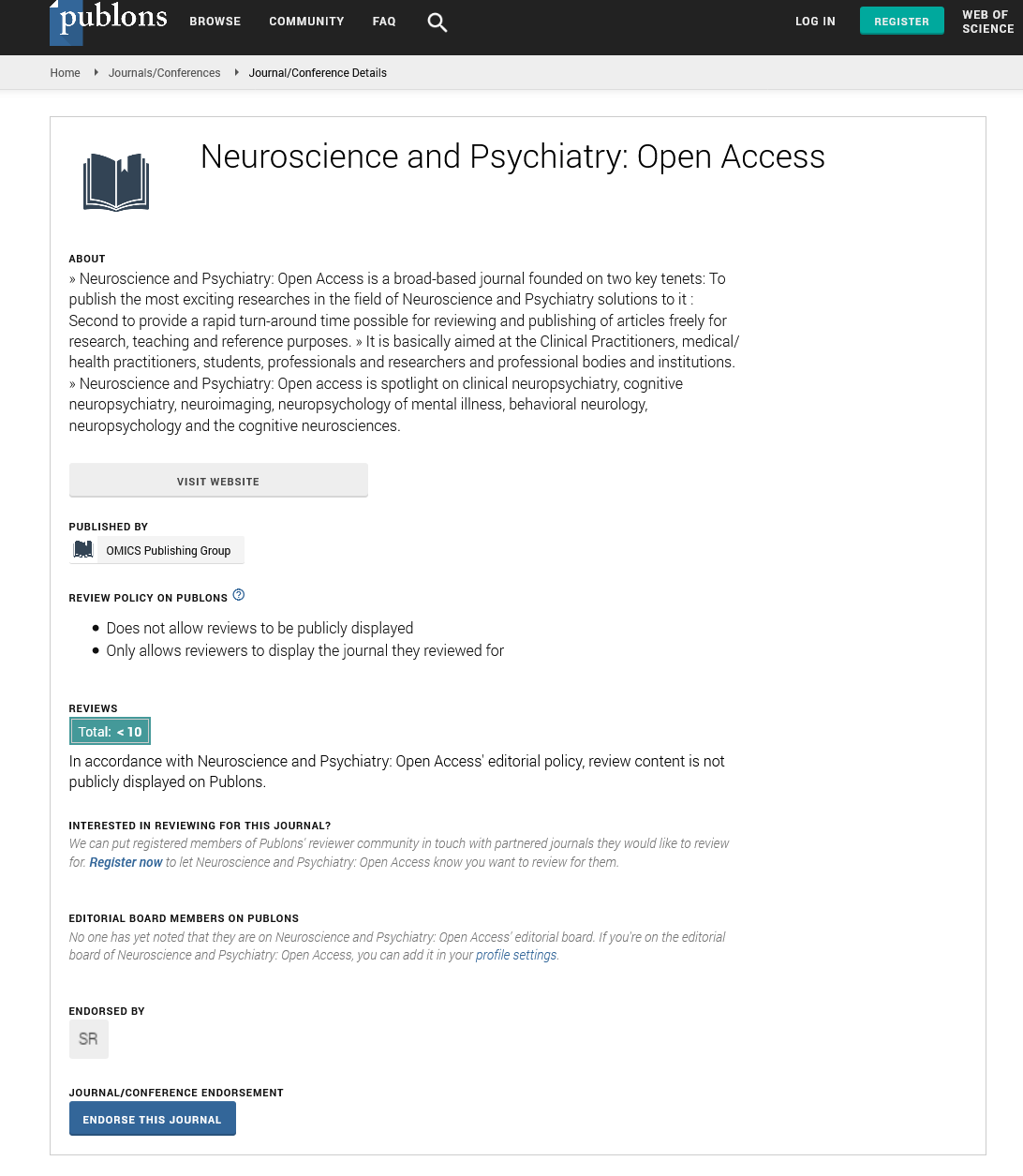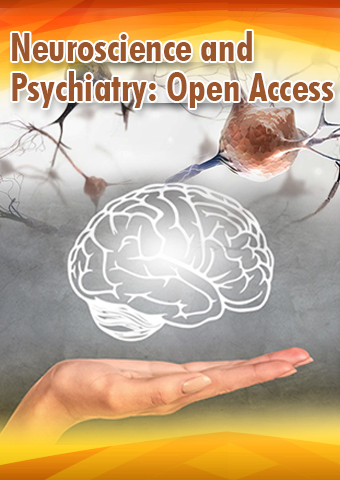Editorial - Neuroscience and Psychiatry: Open Access (2023) Volume 6, Issue 3
A Comprehensive Exploration of the Foundations, Methodologies, and Fundamental Importance of Epidemiology in Protecting Public Health
Chen Bode*
Department of Internal Medicine, College of Canada Medicine, Canada University
Department of Internal Medicine, College of Canada Medicine, Canada University
E-mail: chenb@gmail.co.in
Received: 02-06-2023, Manuscript No. npoa-23-101688; Editor assigned: 05-06-2023, Pre QC No. npoa-23- 101688; Reviewed: 19-06-2023, QC No. npoa-23-101688; Revised: 23-06-2023, Manuscript No. npoa-23- 101688 (R); Published: 30-06-2023; DOI: 10.37532/npoa.2023.6(3).47-49
Abstract
Epidemiology, as a crucial discipline within public health, plays a fundamental role in understanding the distribution, determinants, and impact of diseases on populations. This comprehensive exploration unveils the foundations, methodologies, and profound significance of epidemiology in safeguarding public health. The field is firmly rooted in the scientific method, employing systematic approaches to study the occurrence, distribution, and determinants of health-related events. Key concepts and measures, such as incidence, prevalence, and mortality rates, enable a comprehensive understanding of disease patterns and burden. Epidemiological studies encompass diverse research designs, including observational and experimental studies, contributing valuable evidence to inform interventions. Disease surveillance and outbreak investigations are integral to epidemiology, allowing for the detection of outbreaks, identification of emerging threats, and assessment of intervention effectiveness. Epidemiologists tirelessly explore risk factors and determinants that influence disease occurrence, informing targeted interventions and public health policies. Furthermore, epidemiology extends to the realm of global health, where it contributes to understanding global disease patterns and shaping strategies for disease prevention and control on an international scale. Through its foundations, methodologies, and profound significance, epidemiology plays a vital role in safeguarding public health and informing evidence-based interventions and policies.
Keywords
Epidemiology • Public health• Disease patterns • Determinants • Risk factors • Disease surveillance • Outbreak investigation • Interventions • Public health policies • Global health
Introduction
The field of epidemiology stands as an indispensable cornerstone of public health, serving as the bedrock for understanding the distribution, determinants, and impact of diseases on populations [1]. Through rigorous investigation of patterns and trends, epidemiologists strive to identify risk factors, unravel disease transmission dynamics, and develop evidence-based interventions for prevention and control [2]. This comprehensive exploration delves into the foundations, methodologies, and profound significance of epidemiology in safeguarding public health. Epidemiology, as a discipline, is firmly grounded in the scientific method, employing systematic approaches to study the occurrence, distribution, and determinants of health-related events within populations [3]. It encompasses a wide range of health concerns, including infectious diseases, chronic conditions, injuries, mental health disorders, and more [4]. By utilizing diverse research designs such as observational studies and clinical trials, epidemiologists meticulously collect and analyze data, aiming to unravel associations, estimate risks, and elucidate causal relationships [5]. The essence of epidemiology lies in key concepts and measures that enable a comprehensive understanding of disease patterns [6]. Incidence, a fundamental measure, captures the occurrence of new cases within a population during a specific time frame, providing valuable insights into disease risk. Prevalence, on the other hand, portrays the overall burden of a disease in a population, encompassing both existing and new cases [7]. Furthermore, mortality rates offer a reflection of the number of deaths attributed to a particular disease or condition [8]. These fundamental concepts empower researchers to gauge the impact of diseases, prioritize public health interventions, and allocate resources effectively. The realm of epidemiology encompasses various types of studies, broadly categorized into observational and experimental designs [9]. Observational studies, including cross-sectional, case-control, and cohort studies, meticulously observe and analyze the relationships between exposures and outcomes without deliberate interventions. In contrast, experimental studies, predominantly randomized controlled trials (RCTs), involve deliberate interventions to assess the effects of treatments or preventive measures. Both study types contribute invaluable evidence to epidemiological research, with RCTs often regarded as the gold standard for evaluating interventions [10]. Epidemiologists are relentless in their pursuit of understanding the risk factors and determinants that influence disease occurrence within populations. These factors can encompass biological, environmental, behavioral, or socioeconomic components. By unraveling underlying causes and associations, epidemiology provides the basis for targeted public health interventions. Smoking cessation programs, vaccination campaigns, and improvements in sanitation infrastructure are just a few examples of interventions borne out of epidemiological research on risk factors.
Materials and Method
This comprehensive exploration of the foundations, methodologies, and profound significance of epidemiology in safeguarding public health involves a comprehensive review of existing literature, research studies, and expert opinions. The following materials and methods were employed to gather relevant information and insights:
Foundations of epidemiology: Epidemiology is rooted in the scientific method, relying on systematic approaches to study the occurrence, distribution, and determinants of health-related events in populations. This includes investigating infectious diseases, chronic conditions, injuries, mental health issues, and more. Epidemiologists employ various research designs, such as observational studies and clinical trials, to collect and analyze data. These methodologies allow for the identification of associations, the estimation of risks, and the exploration of causal relationships.
Key concepts and measures: To comprehensively understand disease patterns, epidemiology employs several key concepts and measures. Incidence measures the occurrence of new cases within a population during a specific time period, providing insights into disease risk. Prevalence, on the other hand, describes the overall burden of a disease in a population, including both existing and new cases. Mortality rates reflect the number of deaths in relation to a particular disease or condition. Understanding these concepts and measures enables researchers to gauge the impact of diseases and prioritize public health interventions accordingly.
Disease surveillance and outbreak investigation: Epidemiologists play a crucial role in disease surveillance, which involves the systematic collection, analysis, and interpretation of health data. By monitoring disease patterns, they can detect outbreaks, identify emerging threats, and track the effectiveness of interventions. During outbreaks, epidemiologists are at the forefront of investigation, identifying the source, mode of transmission, and risk factors. Through contact tracing and detailed analysis of cases, they can control the spread of diseases and prevent further morbidity and mortality.
Risk factors and determinants: Epidemiologists investigate risk factors and determinants that influence disease occurrence in populations. These factors can be biological, environmental, behavioral, or socioeconomic in nature. By understanding the underlying causes and associations, public health interventions can be tailored to target these specific risk factors. For example, smoking cessation programs, vaccination campaigns, and improvements in sanitation infrastructure are all outcomes of epidemiological research on risk factors.
Global health and epidemiology: In an interconnected world, global health has become a significant focus of epidemiological research. The movement of people, goods, and pathogens across borders has increased the complexity of disease transmission and necessitates global cooperation. Epidemiologists study global disease patterns, assess the impact of globalization on public health, and collaborate with international organizations to develop strategies for disease prevention, surveillance, and control.
Conclusion
Epidemiology stands as a foundational discipline within public health, playing a pivotal role in understanding the distribution, determinants, and impact of diseases on populations. Through its rigorous methodologies and evidencebased approaches, epidemiology contributes significantly to safeguarding public health. This comprehensive exploration has shed light on the foundations, methodologies, and profound significance of epidemiology in the field. By employing the scientific method, epidemiologists systematically investigate the occurrence, distribution, and determinants of healthrelated events. Key concepts such as incidence, prevalence, and mortality rates provide valuable insights into disease patterns and burden, enabling the prioritization of interventions and resource allocation. Observational and experimental studies offer critical evidence to inform interventions and policy development, with randomized controlled trials serving as the gold standard for evaluating effectiveness. Epidemiology plays a crucial role in disease surveillance and outbreak investigations, enabling the detection and control of outbreaks, identification of emerging threats, and assessment of intervention effectiveness. By studying risk factors and determinants, epidemiologists uncover the underlying causes and associations of diseases, informing targeted interventions and preventive measures. Through evidencebased public health policies, epidemiology guides decision-making processes and shapes strategies for disease prevention and control. Moreover, epidemiology has expanded its scope to encompass global health, recognizing the interconnectedness of populations and the global nature of disease transmission. Collaborating with international organizations, epidemiologists contribute to understanding global disease patterns, assessing the impact of globalization on public health, and developing strategies for disease prevention, surveillance, and control on a global scale.
References
- Gatseva, Penka D, Argirova et al. Public health: the science of promoting health. J Public Health.19,205-206 (2011).
- Winslow, Charles-Edward Amory. The Untilled Field of Public Health. Mod Med. 2,183-191 (1920).
- Perdiguero E. Anthropology in public health Bridging differences in culture and society. J Epidemiol Community Health. 55,528b-528 (2001).
- Coomans, Janna. The king of dirt: public health and sanitation in late medieval Ghent. Urban History. 46, 82-105 (2019).
- Wallace, Megan, Sharfstein et al. The Patchwork U.S. Public Health System. N Engl J Med. 386, 1-4 (2022).
- Alfonso, Y Natalia, David et al. US Public Health Neglected: Flat Or Declining Spending Left States Ill Equipped To Respond To COVID-19. Health Aff. 40,664-671 (2021).
- Geltner, G. In the Camp and on the March: Military Manuals as Sources for Studying Premodern Public Health. Medical History. 63, 44-60 (2019).
- Himmelstein, David U, Woolhandler et al. Public Health's Falling Share of US Health Spending. Am J Public Health. 106, 56-57 (2016).
- Bliss, Katherine. The Science of Redemption: Syphilis, Sexual Promiscuity, and Reformism in Revolutionary Mexico City. Hisp Am Hist Rev. 79, 1-40 (1999).
- Schwartz SE, Levine RA, Weinstock RS et al. Sustained pectin ingestion: effect on gastric emptying and glucose tolerance in non-insulin-dependent diabetic patients. Am J Clin Nutr. 48, 1413-1417 (1988).
Indexed at, Google Scholar, Crossref
Indexed at Google Scholar, Crossref
Indexed at, Google Scholar, Crossref
Indexed at, Google Scholar, Crossref
Indexed at, Google Scholar, Crossref
Indexed at, Google Scholar, Crossref


